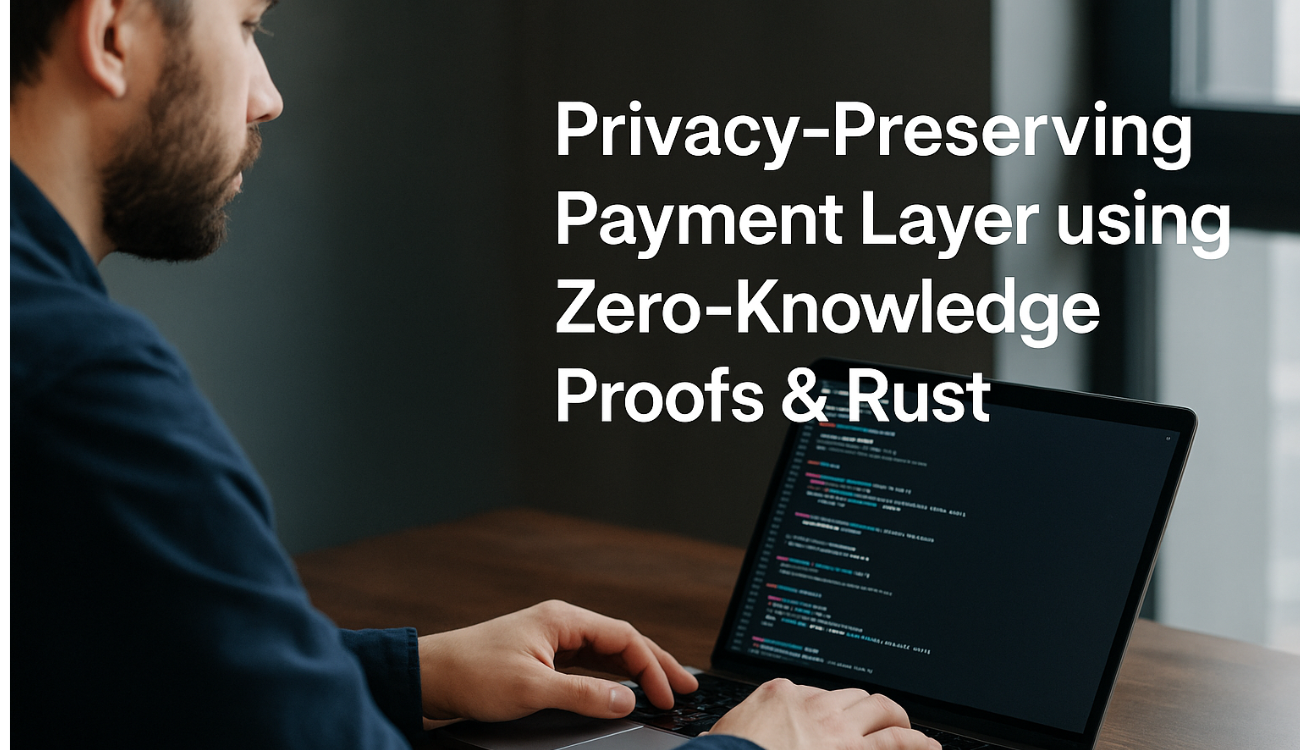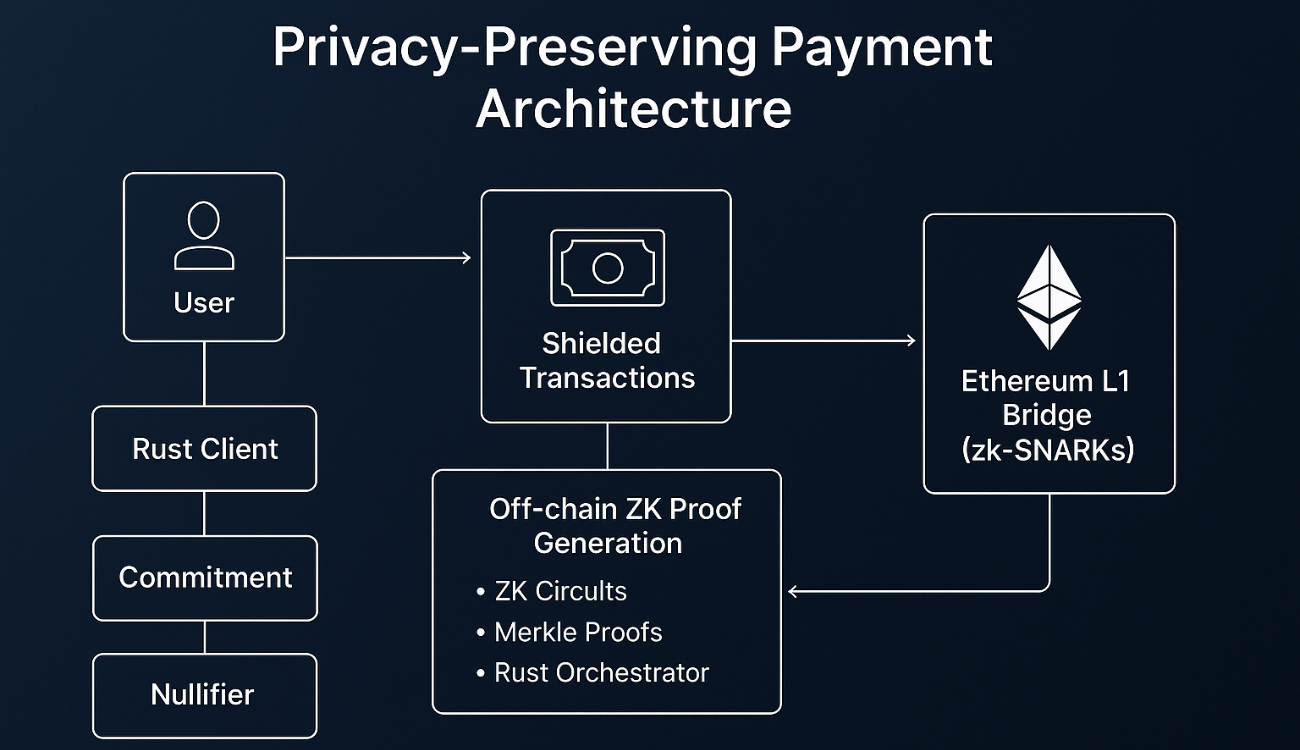
RESULTS
▫️70% reduction in calldata size — thanks to off-chain proof generation
▫️12,000+ shielded transactions in just 4 months
▫️<15s latency from proof to withdrawal
▫️Regulatory-ready compliance hooks built in
▫️190k gas avg. per verified withdrawal — cheaper than most L2 bridges
THE CLIENT
A rising DeFi infrastructure provider scaling fast in APAC and Europe — with one clear mission: deliver real financial privacy without getting blacklisted or blocked.
THE PROBLEM
OUR SOLUTION
We built them a Rust-native privacy layer powered by zero-knowledge proofs — designed for Ethereum, optimized for performance, and hardened for regulatory scrutiny.
▫️zk-based mixer (Groth16, Bulletproofs)
▫️ Rust orchestrator for off-chain proof generation
▫️ Shielded ERC-20 & ETH transfers with Poseidon/MiMC commitments
▫️ Optional blacklisting of UTXOs/nullifiers
▫️ Solidity bridge contracts for L1 compatibility

BOTTOM LINE
Contact Us
©2025 | Techststeck Solutions